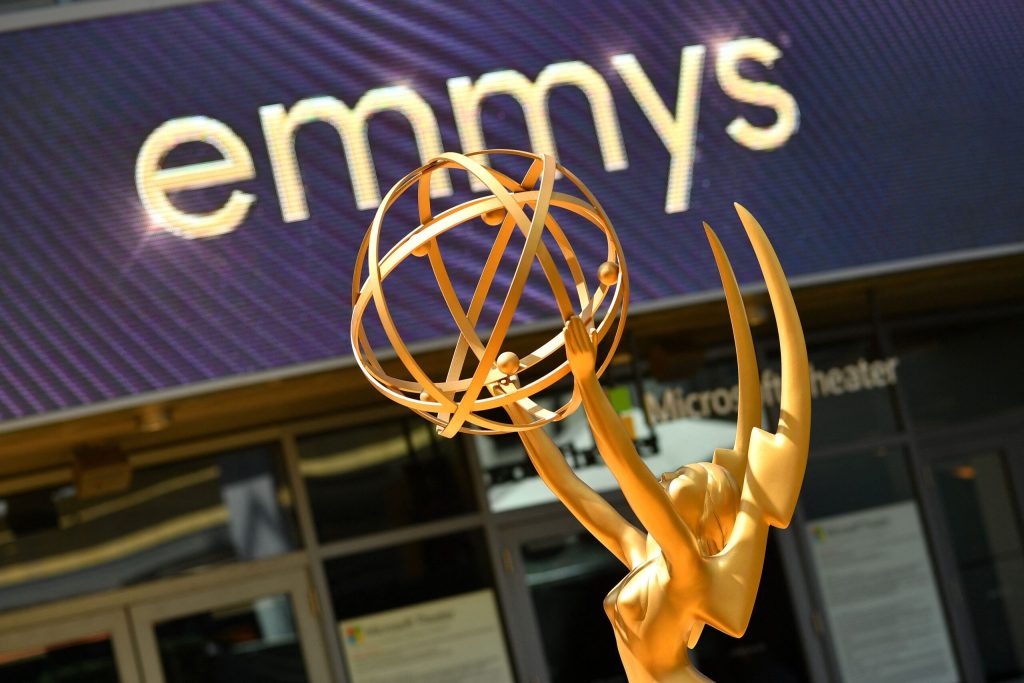In 2023, as Writers Guild of America (WGA) and Screen Actors Guild-American Federation of Television and Radio Artists (SAG-AFTRA) picket lines crowded outside Hollywood studios and shuttered productions across the country, artificial intelligence (AI) emerged as one of the key causes of an often-acrimonious dispute. Given that 2024 is already being called “the year of AI,” many voices in the entertainment industry say we should embrace what AI will offer. I disagree — mostly.
However, I do agree that AI will soon be a fundamental, albeit controversial, part of our everyday experience, perhaps most visibly in entertainment. Whether we like it or not, the people behind AI’s technology, innovation and creative application will surely deserve to be recognized. That’s right: I foresee a not-that-distant future in which AI struts down the red carpets of Hollywood’s premiere awards shows.
Not literally, of course. (But how long will it be before digital avatars of celebrities attend these shows while their human incarnates watch at home in pajamas?) Yet, achievements in AI in both TV and film will certainly merit the same acclaim we award to so many other technologies and crafts used in making shows and movies.
Cinematography, editing and sound design and animation already receive awards for their work, and rightly so. AI will soon both augment the work these artists do, or perhaps transform it entirely.
We’re already seeing its admittedly positive effects in other fields, such as wildlife photography: AI applications can monitor animal burrows or other habitats, and identify the creatures that show up — freeing up researchers from having to scrub through hours and hours of footage so they can focus on more creativity-driven work.
Could that same application work for wildlife documentaries? Why not? And if it does, how much time and money would be saved by not hiring production crews?
With a human mind guiding the editorial content, these documentaries could potentially be just as good — or better — than conventional ones. But those humans will deserve to be recognized by award committees just like other artisans in entertainment and should be respected with their own award category.
But that’s just the near future. What if we fast-forward even further? What’s AI’s real potential in the industry?
What I envision might shock you.
One day, I believe AI creations — by which I mean fully digitally created performers — will “act” beside the biggest names in TV and film. Those digital performers probably should get awards, too.
Sound crazy? How can a stack of code “perform” or “act?” It’s not as farfetched as you’d think. In Japan, AI-generated, utterly realistic digital “people” already appear in advertising, removing any casting costs and reducing overall advertising budgets.
In fact, the advertising sector will be ground zero of an AI revolution in visual media. In most TV or video ads, the narrative premise is simple, the scripts don’t require emotional gravitas, and they’re short — in other words, an obvious place to swap a human actor for an AI one.
The leap from commercials to film and TV occurred years ago. In Star Wars: Rogue One, actor Peter Cushing was brought back from the dead, his digital likeness indistinguishable from human actors on the same screen; in the most recent Indiana Jones film, an 81-year-old Harrison Ford was made to look 30 again for not just a single scene, but a lengthy action sequence.
It’s not impossible that in some future sequel of Indiana Jones, Harrison Ford won’t set foot on a film stage at all — though his AI version could “star” in the film. Maybe the real Margot Robbie won’t be in some future Barbie sequel; maybe the beloved Sean Connery will be resurrected by his estate for one more go-around as 007.
It may sound farfetched, but is it really? And if these changes come to pass, what happens to the roles of the thousands of people behind the scenes making TV and film? Costumers? Set builders? Makeup artists? Caterers, drivers and assistants? Is AI an extinction-level event for Hollywood as we know it?
Let me dial back the catastrophe.
In my view, AI is only going to become more and more relevant across TV and film — let alone the rest of the world. Hollywood survived the transition from silent movies to “talkies,” and from black-and-white to color — so, I think it will survive AI, too.
Of course, there are moral hazards that come with recognizing AI achievements in TV and film, but we won’t be able to ignore it forever — and we probably shouldn’t try.
So, as we celebrate this year’s Emmy Awards, I suggest a new category. We should hear a celebrity announce, “The award for outstanding, creative use of AI goes to . . . ” Will a real person accept that award — or that real person’s digital avatar? We may know soon — a lot sooner, in fact, than any of us expect.
Paul Epstein is an Emmy-nominated producer, writer and director known for his work across scripted, factual and news television. Epstein has worked with many major TV networks and streamers, including Peacock, Discovery and MSNBC, and has amassed approximately 40 credits across his 20-year-long career. He has worked on titles such as the true-crime documentary series “Who Killed Robert Wone?” and the factual drama series “Into the Wild Frontier,” the most-watched TV series on INSP in 2021. Most recently, he directed “The Tall Tales of Jim Bridger,” a historical drama series that premiered on INSP on Jan. 11.
